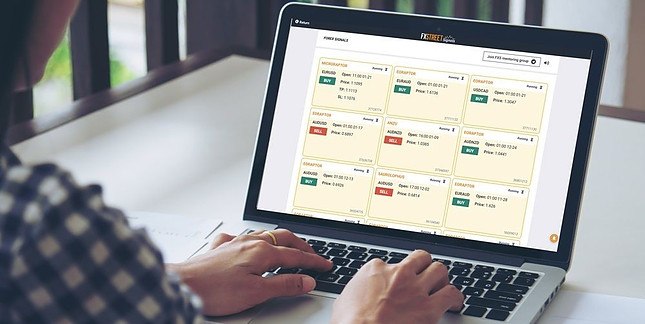EUR/GBP Tasso di cambio
Scelte dei redattori

FXStreet launches Real-Time Trading Signals
FXStreet Signals offers access to explanatory live webinars, real-time notifications when signals are triggered and exclusive membership to the company’s Telegram group, where users get direct guidance by our analysts and get room to discuss and interact.

Trade the events with the fastest Economic Calendar
Keep up with what is going on in the FX market — from current economic events to economic indicators — by checking our economic calendar, which covers more than 1000 events from all over the world.
EUR/GBP
The EUR/GBP pair reflects how many British Pounds (GBP) are needed to
purchase one Euro (EUR). As both currencies are considered high-yielding assets, the pair
usually has limited daily volatility. Significant movements are usually triggered by major
events such as central bank monetary policy announcements or political disruptions, such as the
United Kingdom’s exit from the European Union (EU), commonly known as Brexit.
In a public
referendum held in June 2016, 17.4 million people voted for Brexit, giving the 'Leave' side 52%
of the vote compared to 48% for 'Remain.' The UK officially departed the EU on January 31, 2020.
HISTORIC HIGHS AND LOWS FOR EUR/GBP
- All-time records: Max: 0.9744 on 30/12/2008 – Min: 0.5727 on 03/05/2000
- Last 5 years:: Max: 0.9499 on 13/03/2020 – Min: 0.8202 on 04/03/2022
* Data as of December 2024
ASSETS THAT INFLUENCE EUR/GBP THE MOST
- Currencies: The US Dollar (USD) and the Japanese Yen (JPY).
- Commodities: Oil and Gold.
- Bonds: The Gilt (debt securities issued by the Bank of England) and Bund (the German word for "bond", a debt security issued by Germany's federal government).
- Indices: FTSE 100 (a share index of the 100 companies listed on the London Stock Exchange with the highest market capitalization), ESTX50 (Euro Stoxx 50, a stock index of Eurozone stocks designed by STOXX, an index provider owned by Deutsche Börse Group) and DAX (the German stock index consisting of the 30 major German companies trading on the Frankfurt Stock Exchange).
INFLUENTIAL ORGANIZATIONS, PEOPLE AND ECONOMIC DATA FOR THE EUR/GBP
The organizations and people that affect the most the moves of the EUR/GBP pair are:
- Bank of England (BoE): the central bank of the United Kingdom (UK). Known as ‘The old lady of Threadneedle Street’, is responsible for maintaining the UK’s economic stability. It operates monetary policy by adjusting the Bank Rate and, in certain circumstances, supplements this with measures such as quantitative easing. Andrew Bailey has been the Governor of the BoE since March 2020 and his appointment ends on March 2028.
- European Central Bank (ECB): the central bank empowered to manage monetary policy for the Eurozone. With its beginnings in Germany in 1998, the ECB’s mandate is to maintain price stability in the Eurozone, so that the Euro’s (EUR) purchasing power is not eroded by inflation. As an entity independent of individual European Union countries and institutions, the ECB targets a year-on-year increase in consumer prices of 2% over the medium term. Another of its tasks is controlling the money supply. This involves, for instance, setting interest rates throughout the Eurozone. The European Central Bank’s work is organized via the following decision-making bodies: the Executive Board, the Governing Council and the General Council. Christine Lagarde has been the President of the ECB since November 1, 2019. Her speeches, statements and comments are an important source of volatility, especially for the Euro and the currencies traded against the European currency.
- London’s City Financial District: One of the largest and most developed financial markets in the world, it plays a pivotal role in driving the UK’s economic growth, with banking and finance serving as significant contributors to the national economy.
- UK Government and its prime minister, Keir Starmer , who took office on July 2024, becoming the first Labour prime minister since Gordon Brown in 2010 and the first one to win a general election since Tony Blair in 2005.
- GDP (Gross Domestic Product): The total market value of all final goods and services produced in a country. It serves as a gross measure of economic activity, indicating whether a country's economy is expanding or contracting. A high or a better - than-expected reading is generally positive for the NZD, while a low reading tends to be negative.
- Inflation indicators: Key measures such as the Consumer Price Index (CPI) and the Production Price Index (PPI) reflect changes in prices.